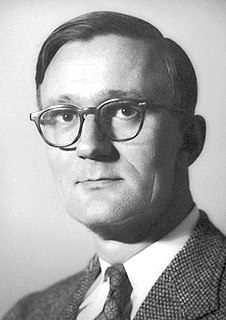A Quote by Immanuel Wallerstein
Scientific culture created a framework within which individual mobility was possible without threatening hierarchical work-force allocation. On the contrary, meritocracy reinforced hierarchy. Finally, meritocracy as an operation and scientific culture as an ideology created veils that hindered perception of the underlying operations of historical capitalism.
Related Quotes
When culture is created in boardrooms with a panel of six or seven strategists for the masses to follow, to me that is no different than an aristocracy. It's not created from the people in the middle of the streets, so to speak. It is created from a petri dish for the sake of making money, and it is undermining the longevity of the culture.
The belief that the animals exist because God created them - and that he created them so we can better meet our needs - is contrary to our scientific understanding of evolution and, of course, to the fossil record, which shows the existence of non-human primates and other animals millions of years before there were any human beings at all.
Which was first, Matter or Force? If we think on this question, we shall find that we are unable to conceive of matter without force, or force without matter. When God created the elements of which the earth is composed, He created certain wondrous forces, which are set free and become evident when matter acts on matter.
Culture is the name for what people are interested in, their thoughts, their models, the books they read and the speeches they hear, their table-talk, gossip, controversies, historical sense and scientific training, the values they appreciate, the quality of life they admire. All communities have a culture. It is the climate of their civilization.
Aeroplanes are not designed by science, but by art in spite of some pretence and humbug to the contrary. I do not mean to suggest that engineering can do without science, on the contrary, it stands on scientific foundations, but there is a big gap between scientific research and the engineering product which has to be bridged by the art of the engineer.
We have entered a new phase of culture - we may call it the Age of the Cinema - in which the most amazing perfection of scientific technique is being devoted to purely ephemeral objects, without any consideration of their ultimate justification. It seems as though a new society was arising which will acknowledge no hierarchy of values, no intellectual authority, and no social or religious tradition, but which will live for the moment in a chaos of pure sensation.
Every work of art (unless it is a psuedo-intellectualist work, a work already comprised in some ideology that it merely illustrates, as with Brecht) is outside ideology, is not reducible to ideology. Ideology circumscribes without penetrating it. The absence of ideology in a work does not mean an absence of ideas; on the contrary it fertilizes them.






































